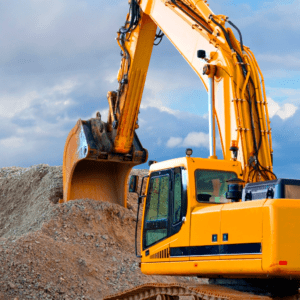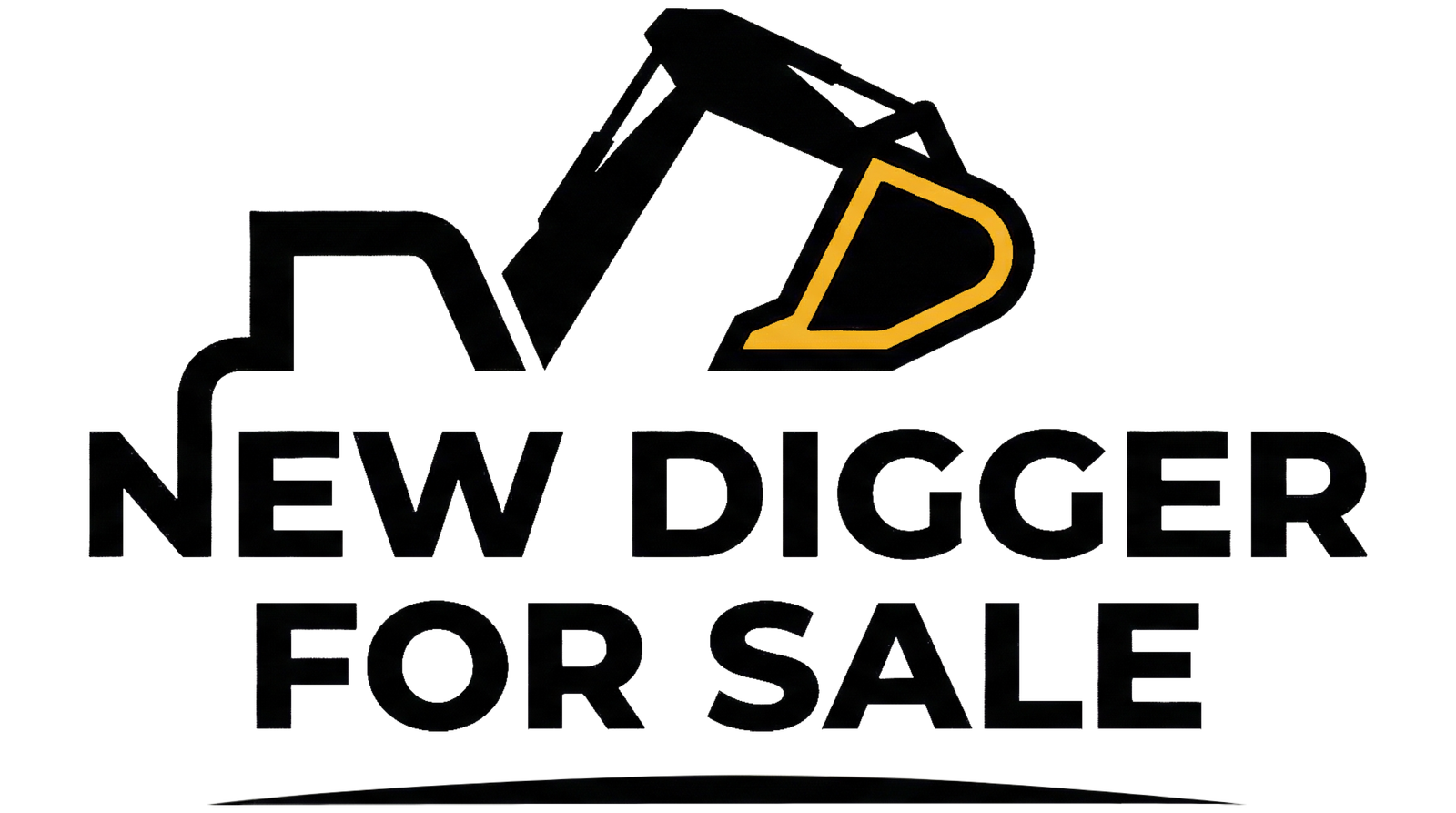In gardening and building, the need of choosing the appropriate tools is unparalleled. Whether you are building a new house or redesigning a landscape, the equipment you use will significantly affect the effectiveness and success of every work. Among these instruments, a 1 ton digger—also known as a 1 ton excavator—stands out as a flexible and strong option for a range of minor to medium-sized jobs. With so many options and brands available today, selecting the right one for your needs may seem difficult, though.
This comprehensive guide will enable you to negotiate the key elements in selecting the best 1 ton digger for your project. From evaluating their unique features to understanding your specific project requirements, we wish to equip you the instruments required to make a sensible decision. By the end of this course, you will be more conscious of what to hunt for in a 1 ton digger, therefore enabling you to boldly negotiate the buying or leasing process.
Understanding 1 Ton Diggers
What Is a 1 Ton Digger?
Designed for quick small-scale job efficiency, a 1 ton digger is a compact excavator. Though small in size, this equipment has a lot of capacity for activities including lifting, trenching, and excavation. Its compact scale is a great advantage since it allows operators to work in constrained spaces where more equipment just cannot fit. Either navigating a small urban lot or working in a highly planted garden, a 1 ton digger provides the flexibility needed to finish the work.
Moreover, the power of a 1-ton digger has nothing bearing on its size. Built to give great performance, these machines are first choice for jobs needing accuracy and adaptability. Their design is designed for usage and often features straightforward controls appealing to both experienced operators and beginners. This is a terrific option for homeowners and professionals wanting to start various projects without the need for major knowledge or experience.
Key Features of a 1 Ton Excavator
Various instruments found in one-ton excavators help to increase their versatility and efficiency. Their compact scale allows them to easily handle limited places, hence they are ideal for projects involving urban development or residential surroundings. Their mobility is balanced by their ability to store a variety of attachments, including buckets, augers, and breakers, which boost their use beyond basic digging tasks.
One-ton excavators also have a very important simplicity of use. Many versions have user-friendly interfaces that ensure operators may quickly pick up machine controls and adapt to them. Those with minimal background operating heavy machinery notably stand to benefit from this. Moreover well-known for their fuel economy are these smaller machines, which run less than larger excavators. Reducing fuel usage and pollution not only helps running costs but also corresponds to environmental friendly practices.

Benefits of Using a 1 Ton Digger
Compact and Versatile
The small scale of one of a 1-ton digger is among its main advantages. It is rather adaptable since its capacity allows it to reach locations inaccessible for more large-scale machines. Whether your work is modest construction site labor, utility installation, or home landscaping, a 1-ton digger can efficiently handle a variety of tasks. Its adaptability reduces the need for many machines by streamlining procedures and thereby reducing equipment costs.
The adaptability of a 1-ton digger transcends its visible weight as well. These machines can be fitted with a variety of attachments, therefore enabling them to perform many tasks without additional tools. This adaptability helps projects needing quick transitions between functions—that is, from digging to lifting or trenching to backfilling. One-ton diggers are consequently a favored choice for contractors requiring consistent performance over many building sites.
Cost-Effective
Economically, a 1-ton digger is obviously less costly than larger models. Often less expensive initially, these machines let a larger spectrum of buyers—including do-it-yourselfers and small contractors. Sometimes 1-ton diggers have less running expenses than purchase price thanks in part to great fuel economy and cheap maintenance requirements.
Fuel efficiency is one main benefit since, over time, especially for projects requiring continuous machinery operation, it shows considerable savings. Moreover, the simpler construction of 1-ton diggers usually results in less mechanical difficulties, therefore reducing the frequency and cost of repairs. With their low running cost and little starting expenditure, 1 ton diggers are an attractive option for people wanting to maximize their budget without compromising dependability or performance.
Ease of Transport
Moving large machinery specifically might present logistical challenges depending on the equipment that demands for professional transportation services. Still, 1-ton diggers offer a solution for this given their simplicity of transporting. With a basic trailer, most types can be readily transported, so minimizing the need for paying costly transportation costs or buying specialist trailers.
This simplicity of transportation not only reduces costs but also gives more project planning freedom. Operators from one site to another can quickly transfer the digger, therefore enabling more efficient scheduling and execution of many projects. This logistical benefit significantly helps to increase operational efficiency and project turnaround times for contractors who supervise many sites or need speedy equipment deployment to different locations.
Factors to Consider When Choosing a 1 Ton Digger
Project Requirements
Before choosing a buy-lease, you should closely review your project needs. This means considering especially the surroundings in which you will be working as well as the tasks you will be accomplishing. If your project demands for excavating on challenging terrain, for instance, you might need a digger with additional power and specific accessories. Understanding these criteria will enable you to select the attributes most relevant for your particular circumstances.
Consider also the range and duration of your project. Short-term or one-off projects could support a more basic model or rental option; for long-term projects investing in a higher-end model with advanced capabilities could be warranted. Matching the capacity of the digger with your project requirements ensures that the tools not only meet but significantly exceed your expectations, so ensuring the overall success of your work.
Budget
When selecting a 1 ton digger, the decision-making process largely centers on financial concerns. One should take long-term expenses of the digger into account even if the least costly option sounds interesting. This encompasses elements such possible repairs, fuel economy, and maintenance costs as well as the purchase price. Choosing a model with the best value for money in terms of features, efficiency, and durability over time will help you save rather large sums.
Consider also the financial options you now have at hand. Some manufacturers and dealers provide lease options or flexible payment terms to help to highlight the first financial load. Good budget and option research will enable you to select a machine that assures reliability and efficiency and matches your financial position.
Brand and Model
The brand and type you choose will greatly affect the performance and dependability of your equipment since not all 1 ton diggers are manufactured alike. Different brands offer different levels of consumer service, performance, and quality. Analyzing consumer opinions and professional viewpoints will assist one to have a good awareness of the dependability and reputation of various brands. Particularly pay special attention to factors such manufacturer customer service quality, spare part availability, and warranty conditions.
Consider also the technological advancements contained into several models. Some businesses are well-known for adopting cutting-edge technologies include sophisticated hydraulic systems or operator-friendly interfaces that increase output and efficiency. Analyzing these components helps you select a brand and model that not only meets your present needs but also offers long-term dependability and support.
Attachments and Accessories
Different attachments and extras enable a 1 ton digger to be far more flexible. Your project may call for attachments to handle specific tasks including rakes, grashers, or augers. It is rather important to make sure the digger you choose matches the accessories you need. This compatibility maximizes digger performance as well as return on investment.
Apart from compatibility, consider the ease of changing among attachments. Some models feature fast-change systems that permit quick transitions between different tools, hence reducing downtime and increasing output. Selecting a digger with the right attachments and accessories will enable you to modify your tools to match the specific needs of your tasks, therefore ensuring that you have the tools needed to tackle any challenge that arises.
Maintenance Tips for Your 1 Ton Digger
Regular Inspections
Maintaining the best shape of your 1-ton digger depends totally on regular checks. These inspections ensure that all parts are running as they should, search for wear and tear, and highlight any likely issues before they become costly repairs. Regular inspections enable you to promptly address minor problems, therefore preventing them from turning into major mechanical failures that could compromise your projects and result in significant expenses.
Moreover, regular inspections allow an opportunity to assess the general digger performance. Key performance indicators like as fuel economy and hydraulic pressure let you identify areas requiring maintenance and implement necessary corrections. This proactive approach not only extends the lifetime of your equipment but also enhances its dependability and efficiency, thereby ensuring that it will keep meeting the criteria of your projects.
Proper Storage
Maintaining the longevity and operation of your one-ton digger primarily hinges on proper storage. While not in use, the equipment should be kept dry and protected to prevent the elements and reduce the likelihood of theft or vandalism. Rust, corrosion, and other forms of damage compromising the structural integrity and digger performance might result from hard weather.
Apart from protecting the equipment from external conditions, proper storage lowers the likelihood of unlawful entry and possible usage. By use of security equipment such as locks and video cameras, you can guard your investment and ensure that your digger remains in flawless condition, ready for use anytime needed.
Routine Maintenance
Following the manufacturer’s recommended maintenance schedule will help you to keep your 1-ton digger in ideal operational order. Usually cover normal maintenance including activities including lubrication of moving components, filter replacements, and oil changes. Following this schedule will help you avoid common neglect-related issues include engine wear and hydraulic system malfunctions, therefore extending the lifetime of your equipment.
Apart from regular maintenance, one should be informed on any manufacturer recalls or changes. These modifications can demand improvements to the safety aspects, performance, or maintenance guidelines of the digger. Following recommended changes and keeping current with the most recent data will enable you to make sure your 1-ton digger runs continuously at its best, so offering dependability and consistent performance over all of your tasks.
Conclusion
Choosing the right 1-ton digger calls for careful consideration of many factors, including brand qualities, pricing, and project needs. Proper maintenance of your equipment and knowledge of what to search for will enable you to ensure that your 1-ton excavator purchase pays dividends over time. Whether your landscaping project or minor building job calls for it, the right digger will make all the difference.
In the end, your choice of 1-ton digger investment should be guided by a rigorous evaluation of your specific demands and a commitment to frequent maintenance. Selecting a machine suited for your job and keeping a rigorous maintenance program can help you to maximize the lifetime and efficiency of your equipment. This deliberate approach not only enhances the result of your current projects but also positions you for future development and prospects in the fascinating fields of building and landscaping.
